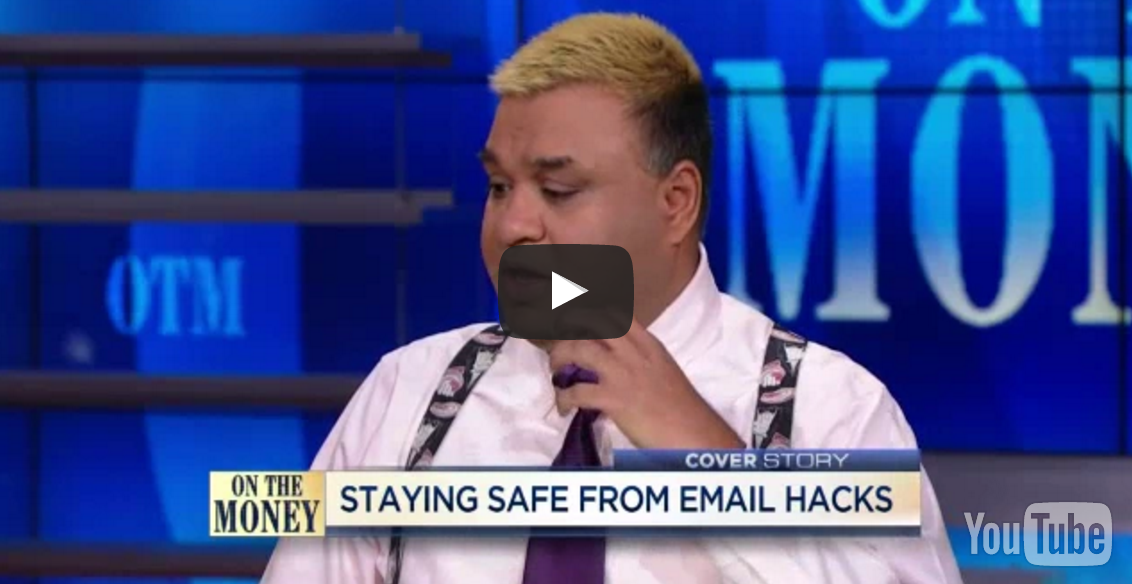
Award-winning New York IT security expert from Brainlink warns CEOs, CFOs and COOs about the dangers of email account takeover scams.
Manhattan’s Brainlink International is urging business leaders to be aware of the latest trend in cybercrime: email account takeovers. Cybercrime in any form can have devastating implications for businesses, but taking over the email account of a CEO, CFO or COO, offers cybercriminals unprecedented access to critical business data.
Cybercriminals target and take over employee email accounts by obtaining sign-in credentials in a variety of ways. Whether through an email phishing scam, a malware invasion or some other persuasive trick, cybercriminals are finding the savviest and most strategic ways to get their hands on valuable access details. Once the credentials have been stolen or inadvertently handed over, email accounts are seized by cybercriminals and valuable business data is up for grabs.
CTO of New York City cybersecurity firm Brainlink, Raj Goel, was recently featured on CNBC to talk about the increasing prevalence of email account takeovers in the US. To help CEO’s, CFO’s and COO’s – and their employees – keep data safe, Goel recommends a security method known as two-factor authentication, which makes hacking into accounts a lot more difficult for cybercriminals.
Two-factor authentication requires users to verify their identity with not one, but two components including passwords, tokens or key fobs. Goel explains that this is a sure-fire way to make it more difficult for hackers to get a hold of the data they want.
“Users are awful at choosing strong passwords,” Goel told CNBC. “Two-factor authentication is reliable and is supported by a variety of applications that business leaders rely on including Gmail, Facebook, Twitter, Instagram, and Amazon.”
Surprisingly though, Goel claims that banks across the nation – who now offer online banking apps of all kinds – are late in adopting two-factor authentication solutions. While rules and regulations exist to protect personal bank accounts, non-consumer accounts for businesses and organizations are not protected legally or guaranteed a reimbursement of stolen funds. This results in serious security vulnerabilities that leave non-personal accounts open to breach and theft.
Furthermore, Gerald Goldhaber, President & CEO of Goldhaber Research Associates, recently noted that when business bank account hacks occur, banks rarely, if ever, attempt to prosecute the crimes.
“It’s a huge fight to get money credited back to a business account and sometimes takes weeks or months, if the money is returned at all,” Goldhaber says. “Regardless of when the bank does give back the money, they definitely do not prosecute identity theft crimes. During some research for a CNN story, the top ten US banks told me that their security departments do not prosecute these crimes. When pressed, they all admitted that their security teams were in business to verify the claims of theft, namely, investigate their own clients.”
The moral of the story is simple: protecting business data – and money – in an increasingly tech-based world isn’t effortless. However, staying vigilant doesn’t have to be a nightmare. Goel his team of cybersecurity experts at Brainlink believe that staying informed about the latest cybercrime trends is the first step in protecting data, money and maintaining strategic business continuity.
“You don’t have to be an expert about all things cybersecurity,” Goel says. “It’s all about getting the information required to make day-to-day employee operations safer and more informed. It only takes one hack to realize just how critical cybersecurity is. Using strategies like two-factor authentication or requesting consistent bank account alerts are easy and smart ways to stay vigilant. Cybercriminals don’t rest and at Brainlink, we look forward to continually strategizing in the pursuit of making CEOs, CTOs and COOs more aware and continually vigilant.”
Full video of Raj Goel’s CNBC interview with Becky Quick can be found at: www.brainlink.com/category/video-library.
If you’d like to connect your business-minded audience with more information about how email account takeovers occur and how business leadership can respond strategically with two-factor authentication strategies, please don’t hesitate to contact Brainlink CTO, Raj Goel to arrange an interview.
Raj Goel, CTO – Brainlink
(917) 685-7731 – raj@brainlink.com
www.brainlink.com
ABOUT BRAINLINK
Brainlink’s primary concern is the client’s business. We believe that the key to providing the best possible service to our clients is to focus on a few simple, yet vital, priorities. IT support, while at times difficult, doesn’t have to be complicated. We keep it simple by relying on the following keys to optimal service: trust, integrity and personal service.
